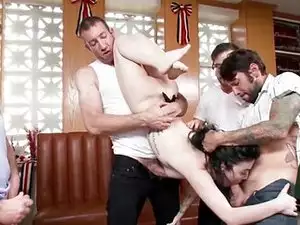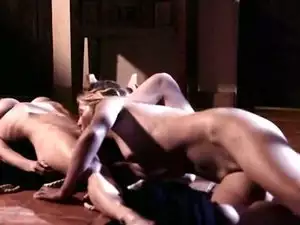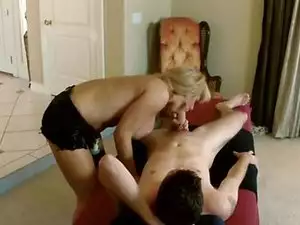A Well-Lived Life 2 - Book 4 - ElyseChapter 23: Court Martial free porn video

July 15, 1990, San Diego, California
“Parc Suites Hotel on 22nd, please,” I said to the taxi driver at Lindbergh Field in San Diego.
The driver pulled away from the curb and Kathy reached over to take my hand. She’d held it most of the way from Chicago as we reminisced about Nick and talked about how we could best support Bethany.
“Thanks for upgrading us to First Class,” she said. “That was much more comfortable.”
“You can thank Barney at our travel agency. He comped us the First Class upgrade because of all the business we give him.”
“What about on the way home?” she asked.
I laughed, “It depends on empty seats. We have open return tickets because we can’t be sure when we’re going home. If the flight has empty first class seats, we get them. If not, we’ll take coach so we can get home. I don’t think Kurt wants you alone with me any longer than absolutely necessary!”
Kathy laughed, “Kurt trusts you more than any man on the planet. If there’s one guy he can be sure won’t try anything, it’s you.”
“I’m offended!” I chuckled. “My reputation would be ruined!”
Kathy giggled, “You had your chance and you turned it down.”
“Because I love the two of you more than anyone outside my house. You’re our dearest friends. I’d never, ever betray Kurt’s trust.”
She smiled and squeezed my hand. We sat quietly for the rest of the ride. We came to a beautiful Victorian mansion and the driver stopped.
“Parc Suites,” he said.
I paid him, then we got out. He got our bags from the trunk, and I took them and carried them inside.
“Steve Adams and Kathy Jaeger to join Bethany Evans,” I said.
The desk clerk checked his register, and then lifted the phone.
“Mrs. Evans, your friends are here. Yes. Right away.”
He hung up.
“Do you need help with your bags?” he asked.
I shook my head, “No.”
“Go on up the stairs, first door on the right.”
“Thanks.”
We walked up the stairs and knocked on the door. Bethany let us into a gorgeous luxury suite.
“Wow!” Kathy said.
Bethany smiled, “Steve’s travel agent knows his stuff!”
“And they accommodated us with a significantly reduced rate because of the Court Martial,” I said. “How are you doing, Sweetheart?”
“OK. I went out to dinner with Nick’s parents last night. They’re actually doing worse than I am. Nick’s sister is, in layman’s terms, nearly catatonic. She’s been seeing a counselor but it hasn’t helped much.”
“And they’re going to bring her to the courtroom?”
“Yes. I tried to convince them not to, but they won’t listen.”
“Do you have the passes for the base?” I asked.
“Yes. They were couriered over yesterday. Karl arranged for an escort for us. A Lieutenant Commander Boyle will be here with a car tomorrow morning at 8:30am. He’s a friend of Howard’s who works in base logistics.”
“Did you know Howard is dating one of my employees?” I asked.
“No! Which one?”
“A programmer named Jeri Lundgren.”
“Good for him!” Bethany said with a smile.
“What are we doing for dinner?”
“The kitchen is fully stocked. I’d hoped you would cook. There are a couple of bottles of wine and a stocked liquor cabinet, though I don’t think I should drink too much.”
“None of us should,” I said.
The last thing I needed was to have anything impairing my thoughts or weakening my resistance around Bethany. The only job I had was to keep our relationship on the correct side of the line. She was counting on it, and so were my wives.
“Will you cook for us?” Kathy asked.
“Absolutely! Let me see what’s there.”
I went and checked and found quite a few fresh ingredients and even more frozen ones. I decided to make penne pasta with creamy chicken sauce and broccoli. An hour later it was ready.
“Unbelievable,” Kathy said. “You just made this with no recipe and the ingredients you found in a strange kitchen.”
“You like?” I asked.
“It’s awesome!”
We finished eating and the three of us pitched in to clean up. After dinner we sat with a glass of wine on the balcony off the bedroom.
“What are the sleeping arrangements?” I asked.
“Kathy will take the small bedroom. I want you with me, please.”
“If you’re sure. I expected you to have Kathy with you.”
“No, it’s you I need.”
“OK,” I said, nodding my head.
“Whatever you need Bethany, we’re both here for you,” Kathy agreed.
Bethany smiled and took both our hands and squeezed hard.
July 16, 1990, Naval Base San Diego, San Diego, California
“Welcome, Mrs. Evans,” an officer in dress whites with a Captain’s insignia on his collar said. “I’m Captain Larson. I command JAG for this base.”
“Good morning, Captain.”
“I have visitors’ badges for you, Mrs. Jaeger, and Mr. Adams.”
He handed us badges with the word ‘VISITOR’ in large red type. I clipped mine to my dress-shirt pocket and the girls clipped theirs to their blouses.
“If you’ll follow this Petty Officer, he’ll take you to the courtroom and stay with you. If you need anything, anything at all, please ask him.”
“Thank you, Captain,” Bethany said.
We followed the 1st Class Petty Officer whose name tag read ‘Van Zandt’ into a moderately sized courtroom. There was an elevated bench for the judge, two tables for the prosecution and defense, a space for the panel with seven chairs, and benches for observers.
“Only seven chairs for the jury?” Kathy asked.
“The UCMJ requires only five members on the panel,” Petty Officer Van Zandt said quietly. “In this case, Captain Larson appointed seven members to the panel. All of them are officers; Seaman Jefferson didn’t request any enlisted members.”
“How does this work?” Kathy asked.
“In many ways, like a normal felony trial, but the members do not have to be unanimous to find Seaman Jefferson guilty. It only takes a simple majority to convict. Once the members return a verdict, there will be a penalty phase. I believe each of you filed an impact statement and will testify.”
“Yes,” I said. “I have a statement from my son to read as well.”
“Jesse?” Kathy asked.
I nodded, “Make sure you have tissues handy when I read it.”
“Did he write it himself?”
“Abbie helped him,” I said. “But it’s his words. All of them are his. What I have to say is nothing compared to that. In fact, I may say nothing but that. I haven’t decided for sure.”
Others began filing into the courtroom. The prosecution and defense tables were occupied by military officers and someone in civilian clothes at the defense table. Mr. and Mrs. Evans and their daughter were shown in, and sat on a bench behind us.
“He’s retained civilian counsel to advise him, though his defense counsel is the commander at the table,” Petty Officer Van Zandt said.
A minute later I got my first look at the sailor who had killed my friend - Seaman Timothy Jefferson. He was black, about six feet tall, and wearing dress whites. He was escorted by two Marines who directed him to a chair, then took positions behind him.
“Judge Burgess will enter soon and everyone will stand,” Petty Officer Van Zandt whispered.
Two minutes later, the judge entered the room. He was a Captain, in dress whites, and was announced by an armed Marine who I assumed was the equivalent of a bailiff or sergeant at arms. After the judge sat down, the panel was brought in. I saw seven officers - three lieutenants, two lieutenant commanders, and two commanders. Five men, and two women - one lieutenant and one lieutenant commander. One male lieutenant and one commander were black. The rest were white.
“The Convening Authority is Commander, Naval Base Guam, who has, for the convenience of the family, and with agreement by the defense, transferred authority to Commander, Naval Base San Diego. The panel has been appointed and agreed to. All pre-trial motions have been ruled upon. We are ready to begin. Commander Subban, you may proceed.”
The commander serving as the prosecutor read out the charges and then began his case by calling as his first witness Lieutenant Charlton, the officer who had been shot before Nick. The prosecutor stepped through the events of the day and a picture started to form in my mind. There were six more witnesses before a recess was ordered, all of whom described various events of that day.
In the end, it was a simple sequence of events. The sailor, who had a history of discipline problems, had been caught sleeping on duty twice before, and the lieutenant had brought him up on charges before a summary court martial. That had, according to the witnesses, angered Seaman Jefferson, who had made a non-specific threat of ‘solving the problem once and for all’. Lieutenant Charlton had found Seamen Jefferson leaning against a wall with his eyes closed. When he reprimanded the sailor, the sailor chambered a round in his rifle and shot his lieutenant in the stomach.
Nick had come running to the sound of the gunshot, and moved to help the wounded officer. Without a word, Seaman Jefferson had fired twice more, hitting Nick once in the chest and once in the head. Immediately after the second shot, Seaman Jefferson had been tackled by a Marine and a sailor, who wrested the rifle away from him and held him until the military police arrived.
During a recess we used the bathroom and Petty Officer Van Zandt took us to get coffee from the JAG office. To me, the case seemed open and shut, and I had no idea how the defense was going to try to establish reasonable doubt. It didn’t seem possible. Karl and I had talked about the possibility of an insanity plea, but according to Karl, those were very, very difficult to make in a court martial, and it appeared that the defense was not going to take that tack.
Bethany had held up very well during the first session, even when the witnesses described Nick being shot. She had a much tougher time during the second session when the doctors described the injuries to Nick and the prognosis that led to Bethany asking for life support to be discontinued. Bethany squeezed my hand hard during that testimony, but she didn’t cry. Kathy was hanging on my other arm, her face set, looking for all the world like she was going to leap the bar separating the observers from the defense and strangle Seaman Jefferson with her bare hands.
After the medical testimony, and two witnesses who described Seaman Jefferson’s state of mind, the prosecutors began introducing evidence, and calling witnesses to verify each item - the rifle, the shell casings, the slugs that had been removed from Lieutenant Charlton and Nick, the duty roster, and a number of other items that, again, to me, made the prosecution’s case ironclad. I was surprised when just before 1:00pm, the prosecution rested and a lunch recess was ordered.
“That was fast,” I said to Petty Officer Van Zandt.
“It’s not like TV,” he said. “Trials move very quickly. In this case, there really wasn’t much the defense could object to, because most of the testimony was based on official reports, official documents, and expert testimony from naval officers.”
“What kind of defense can they put on? That was pretty damning.”
“The betting pool in the office is that they go for abusive treatment which caused him to commit the acts.”
“I could see that working for the lieutenant he shot. How will that explain away Nick?”
“That’s tougher, but they’ll try the same argument. Honestly, the only thing they can do at this point is go for mitigation in sentencing.”
“Why not plead guilty?” I asked. “And cut a deal?”
“The convening authority rejected any deal. Life imprisonment and reduction in rank to E-1. Should he ever be paroled, a dishonorable discharge.”
“So they hope to get a better deal from the members, then?”
He nodded, “Something like 20 years and a dishonorable discharge. That would make him eligible for parole in ten or so, depending on the exact sentence. They won’t get it.”
“Oh?”
“I know all of those officers. They’ll find him guilty by unanimous vote and after the penalty phase, they’ll give him life. Whether or not it’ll be without parole, I can’t say.”
“What’s your gut feeling?”
“No parole. He shot and killed a fellow officer with no provocation of any kind.”
I nodded, “I hope so.”
“You should have confidence in those officers. The captain has lunch waiting for the three of you and the Evans family in the dining room. I’ll take you there now.”
The three of us, plus Nick’s parents and sister, followed the petty officer to a nicely appointed dining room where we ate lunch. Nick’s sister, Caroline, was, as Bethany had described, nearly catatonic. When she did speak, it was nearly always a monosyllabic answer, and trying to engage in a conversation was effectively useless. What I did learn about Caroline came mostly from her mom - she was nineteen and had dropped out of Arizona State due to Nick’s murder.
“They were really close growing up,” Bethany said to me as we walked back to the courtroom after lunch. “Not like you and Stephanie close, but she basically worshiped Nick.”
“She really needs help,” I said.
“They’ve taken her to a couple of different doctors and therapists. So far, nothing has worked.”
We took our seats in the courtroom, this time with Bethany sitting between Kathy and me, instead of me between them. Petty Officer Van Zandt sat to my right. When everyone was assembled, the defense began their case. It was pretty much what Petty Officer Van Zandt had suggested - revolving around improper treatment and stress. To me, it didn’t seem like much of a defense, but then again, given what I’d seen of lawyers, I might be missing whatever game was being played.
Just before the defense rested their case, I thought I’d finally figured out their strategy - it wasn’t about a finding of ‘not guilty’, but about having the conviction be for negligent homicide or manslaughter rather than murder. I personally didn’t see it, but I didn’t know enough about the Uniform Code of Military Justice to know what was required for a murder conviction. I certainly didn’t see any real defense against the other charges. When the defense rested their case, Captain Burgess, the judge, adjourned the court martial until morning, when the closing statements would be given.
“What do you think?” Bethany asked.
“If I were on the panel?” I replied. “Guilty on all counts. And given what I know about the impact, life at hard labor without parole.”
“Actually,” Petty Officer Van Zandt said, “the whole ‘hard labor’ thing changed with the revision of the UCMJ in 1984. The executing authority may impose it, but it’s not part of a standard sentence. Otherwise, I agree, he’s most likely to be found guilty on all counts and given a life sentence on the murder charge. I doubt he’ll get parole because of the other charges. And he’ll be reduced in rank to E-1, the equivalent of a new recruit.”
“So he’d go to Leavenworth and the commander there would decide if he had to work at hard labor?”
“Basically. I mean, the panel can use that term, but in the end, it’s up to the commander where the seaman will be confined, which, as you say, is likely the Disciplinary Barracks at Fort Leavenworth.”
“You know, I never asked, but what’s your role here?”
“I’m a Legalman, what you would probably call a paralegal. I’m going to law school at night, and when I graduate, I’ll apply for a commission. Normally, I’d be assisting JAG lawyers with cases, but for this case, I’m here to answer any questions Mrs. Evans has about anything related to the trial. Or, if I can’t answer, to find the appropriate officer to provide an answer.”
“How long will closing arguments take?” Bethany asked.
“Maybe an hour. Then the members will retire, deliberate, and vote by secret ballot. All things being equal, I expect a verdict would be published by 11:00am or so. Then tomorrow afternoon would be the penalty phase. Depending on how many people speak, that will take two or three hours. After that, there are brief arguments on punishment by each side. Then the members retire and debate the sentence. Unlike a civilian jury, they won’t stop at dinner time and continue the next day. Depending on how long they deliberate, we could be back for the imposition of the sentence after dinner. If not, then first thing on Wednesday morning.”
- 01.03.2021
- 36
- 0




























































